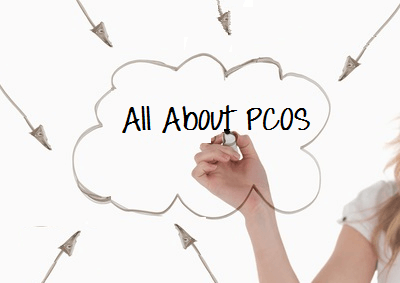
by AmyPlano | Dec 9, 2013 | PCOS and Acne
Acne and Polycystic ovary syndrome(PCOS)
Because polycystic ovary syndrome (PCOS) is due to abnormal shifts in a woman’s hormonal balance, one of the most common symptoms of the disorder is acne.
Treatment for women with acne is largely the same, regardless of whether PCOS is the cause. Over-the-counter products can help reduce the appearance of acne — in some cases, these products can work in just a few days.
Polycystic ovary syndrome(PCOS) and acne scars
While controlling PCOS-related acne can be easy, dealing with acne scars isn’t always as simple.
Acne scars are stubborn, and no single treatment is best for everyone. However, various procedures can improve your complexion.
I’ve included a few suggestions below that can help reduce the appearance of acne scars.
Some of the best treatments for Polycystic ovary syndrome(PCOS)-related acne scars
- Laser treatments. In laser resurfacing, a laser beam destroys the outer layer of skin. As the wound heals, new skin forms. Less intense lasers cause less damage, but are also less effective.
- Energy-based procedures. Pulsed light sources and radiofrequency devices help create new skin without damaging the outer layer of skin. After several treatments, acne scars may appear less noticeable.
- Dermabrasion. This procedure involves removing the top layer of skin with a rapidly rotating wire brush. Surface scars may be completely removed, and deeper acne scars may appear less noticeable.
- Surgery. In some cases, surgery to remove deeply indented acne scars is an option. A minor procedure, called punch excision, cuts out individual acne scars. Stitches or a skin graft repairs the hole left at the scar site.
- Tissue fillers. Injecting collagen or fat under the skin and into the acne scars can fill out or stretch the skin, making acne scars less noticeable. Results are temporary, so you’d need to repeat the injections periodically.
I have PCOS. What’s the best treatment for my acne scars?
If you have PCOS and are looking for the right solution for acne scarring, you should feel encouraged by the various treatments available. But you might feel overwhelmed by the choices, too.
When it comes to erasing acne scars, just remember that it’s best to have a professional help you choose which treatment is most appropriate for you and your needs.
Always discuss the pros and cons of each procedure with your doctor or dermatologist before pursuing any treatment.

by AmyPlano | Dec 3, 2013 | Truth Bomb
What increases a woman’s risk of infertility?
PCOS isn’t the only culprit that can increase a woman’s risk of infertility. Many health and lifestyle factors can negatively impact a woman’s ability to have a baby, or heighten the risk of infertility. Some of these include:
- Age
- Smoking
- Excess alcohol use
- Stress
- Poor diet
- Athletic training
- Being overweight or underweight
- Sexually transmitted infections (STIs)
- Health problems that cause hormonal changes, such as polycystic ovarian syndrome and primary ovarian insufficiency
How can women reduce the risk of infertility?
For many women, the good news is that lowering the risk of infertility is in our control, including quitting smoking, reducing or cutting out alcohol altogether, lowering stress levers, and making dietary changes to ensure proper nutrition.
Unfortunately, factors such as polycystic ovarian syndrome (PCOS) and other hormonal changes aren’t in our control. But that doesn’t mean that your chances of getting pregnant are gone for good.
On the contrary.
If you have polycystic ovarian syndrome (PCOS) and are hoping to become pregnant, there are plenty of lifestyle changes you can make to reduce the risk of infertility. Talk to your doctor, and contact me today for fully customized nutrition plans and personalized lifestyle changes.
Together we’ll get your life with PCOS back on track.

by AmyPlano | Nov 29, 2013 | Truth Bomb
The basics: PCOS, periods, and fertility
What exactly is PCOS? And why do women with PCOS have trouble with their menstrual cycle and fertility?
When a woman has PCOS, her ovaries (where a woman’s eggs are produced) have tiny fluid-filled sacs called follicles or cysts.
As the egg grows, the follicle builds up fluid. When the egg matures, the follicle breaks open, the egg is released, and the egg travels through the Fallopian tube to the uterus (womb) for fertilization. This is called ovulation.
Ovulation: How PCOS affects menstrual cycles and fertility
In women with PCOS, the ovary doesn’t make all of the hormones it needs for an egg to fully mature.
The follicles may start to grow and build up fluid, but ovulation does not occur.
Instead, some follicles may remain as cysts.
For these reasons, ovulation does not occur and the hormone progesterone is not made. Without progesterone, a woman’s menstrual cycle is irregular or absent. Plus, the ovaries make male hormones, which also prevent ovulation.

by AmyPlano | Nov 27, 2013 | Samples
What causes infertility in men
Men and women alike can be at risk for infertility.
Infertility in men is most often caused by:
- A problem called varicocele (VAIR-ih-koh-seel). This happens when the veins on a man’s testicle(s) are too large. This heats the testicles. The heat can affect the number or shape of the sperm.
- Factors that cause a man to make too few sperm, or none at all.
- Movement of the sperm. This may be caused by the shape of the sperm. Sometimes injuries or other damage to the reproductive system block the sperm.
- Sometimes a man is born with the problems that affect his sperm. Other times problems start later in life due to illness or injury. For example, cystic fibrosis often causes infertility in men.




